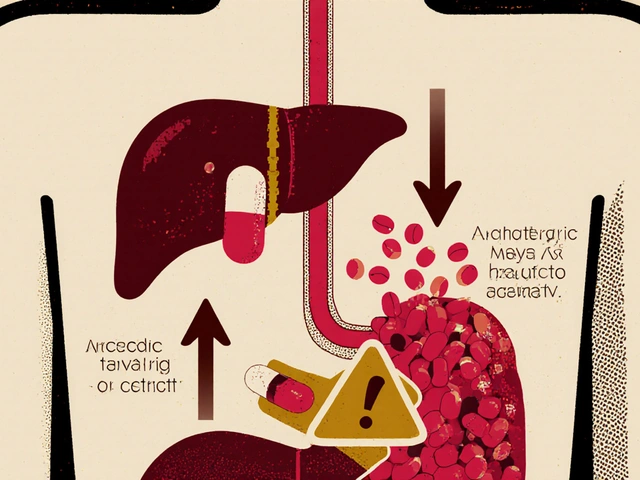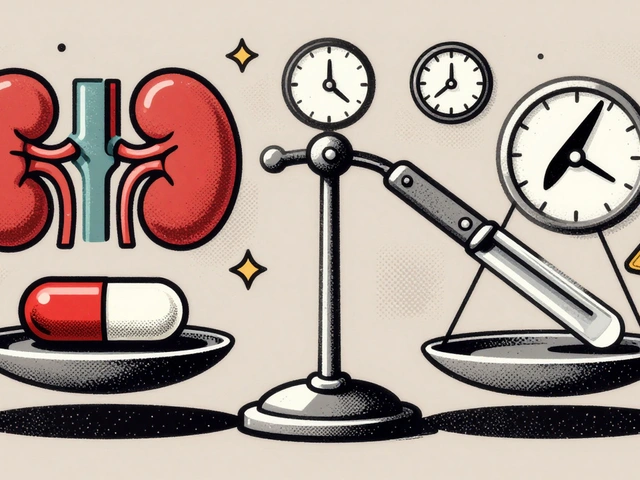Insomnia: What Works When Nights Are Lost
You spend roughly a third of your life sleeping — and when you can’t, everything else feels off. Insomnia isn’t just being tired. It’s trouble falling asleep, waking up too early, or feeling unrefreshed in the morning. This page gives clear, practical steps you can try tonight and explains when to talk to a doctor about meds or therapy.
Practical steps to fall and stay asleep
Start with the basics: keep a consistent sleep schedule. Go to bed and wake up at the same time, even on weekends. That helps your body clock. Next, make your bedroom a sleep-friendly zone: cool, dark, and quiet. Remove screens or use blue-light filters at least an hour before bed.
Wind down with a short routine. Read, stretch lightly, or breathe slowly for five minutes. Avoid heavy meals, caffeine after mid-afternoon, and alcohol close to bedtime. Those things can mask sleep but make quality worse. If you can’t sleep after 20 minutes, get up. Do something calm in low light and return when drowsy—lying in bed awake often makes insomnia worse.
Physical activity helps, but time it right. A daily walk or workout improves sleep if it’s done earlier in the day. Late-night intense exercise can energize you instead of calming you down.
Medications, supplements, and when to consider them
Over-the-counter options like melatonin can help reset your sleep schedule for short-term issues like jet lag or shift work. Antihistamine-based sleep aids may make you drowsy, but tolerance and daytime grogginess are common. Prescription sleep meds ( zolpidem, eszopiclone, or low-dose doxepin ) can help for short periods but have side effects and risks. Use them only under a doctor’s guidance and usually for a few weeks, not months.
Behavioral treatments are the most reliable long-term fix. CBT-I (cognitive behavioral therapy for insomnia) changes habits and thoughts that keep you awake. It often beats medication for lasting results. Many clinicians and online programs now offer CBT-I tools and short courses.
Watch for red flags. If sleep loss affects your daily life, mood, memory, or driving, see a health professional. Also check for underlying causes like sleep apnea, restless legs, chronic pain, anxiety, depression, or medications that interfere with sleep. Treating the root cause often fixes the insomnia better than treating the symptom alone.
If you want a simple plan: tighten your sleep schedule, fix bedroom conditions, build a 30-minute wind-down ritual, cut late caffeine and booze, and try CBT-I strategies. Use supplements or meds only when needed and with medical advice.
On PrescriptionPoint.SU we collect reliable articles about medicines, sleep tools, and mental health strategies. Browse our resources if you want deeper reads on specific drugs or therapies. Good sleep is practical: small consistent changes make the biggest difference.

In my latest blog post, I explored the impact of Vortioxetine on sleep quality and insomnia. After researching, I discovered that Vortioxetine, an antidepressant, has shown promising results in improving sleep quality for individuals suffering from insomnia. The medication works by modulating various neurotransmitters, which may contribute to its sleep-enhancing benefits. However, it's important to note that Vortioxetine may not be suitable for everyone, and it's crucial to consult with a healthcare professional before starting any new treatment. Overall, Vortioxetine could potentially be a helpful option for those struggling with insomnia and seeking better sleep quality.
Continue Reading





